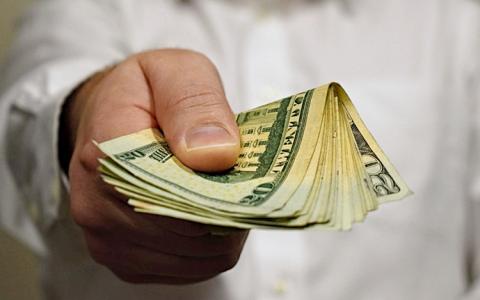
Will you get a 4th stimulus check?
Here’s what you need to know.
Stimulus checks
As many Americans await a third stimulus check, there’s already talk of another stimulus check in response to the Covid-19 pandemic. The latest stimulus package includes up to a $1,400 stimulus check for eligible individuals, $2,800 for married or joint filers, and $1,400 for dependents. (However, it’s possible that you didn’t get a stimulus check — here’s why).
Now, some members of Congress want to give you $2,000 stimulus checks every month until the Covid-19 pandemic is over. Unlike a one-time, $1,400 stimulus check, a proposal for $2,000 stimulus checks every month could be available until the economy is fully recovered. These lawmakers say a one-time stimulus check is insufficient to help Americans pay essential bills. In January, Omar and 55 Democrats sent a letter to President Joe Biden urging him to support further stimulus checks. In February, Rep Ilhan Omar (D-MN) tweeted: “We need $2,000 recurring checks until the end of the pandemic. I joined @TimRyan, @MichaelDTubbs, Stephanie Bonin, and Natalie Foster to push for $2,000 recurring payments for Americans until the economy is fully recovered.”

stimulus checks of $2,000 every month until Covid-19 over.
Re. Ilhan Omar on TwitterIs a fourth stimulus check likely? Here are 5 reasons that you likely won’t get another stimulus check:
1. Congress doesn’t support $2,000 stimulus checks every month
More than 75 members of Congress support stimulus checks every month until the Covid-19 pandemic is over. While progressives want more stimulus checks, there is not enough support in Congress for monthly stimulus checks, let alone $2,000 stimulus checks. Republicans won’t support monthly stimulus checks, and most Democrats won’t either. While Biden doesn’t support monthly stimulus checks, he supports $300 checks every month for children as part of the latest stimulus package.
2. Biden focused on infrastructure package, not stimulus checks
Biden is focused on passing his proposed infrastructure package — the American Jobs Plan — in Congress. Unlike the last stimulus package, this new $2 trillion stimulus package does not include a stimulus check. Biden hasn’t indicated publicly that he supports any further stimulus checks, and he has not responded to Omar’s letter from January that urged him to support more stimulus checks. While it’s possible that a fourth stimulus check could be added to the infrastructure package, it’s unlikely. The infrastructure package is focused on job creation. While stimulus checks provide immediate cash, they don’t create jobs. The infrastructure package also already includes non-infrastructure spending (such as higher pay for healthcare workers), some of which Biden and congressional Democrats will need to amend to gain support for a final bill. This also makes it less likely that non-infrastructure spending provisions such as stimulus checks would likely be added.
3. More Americans are getting vaccinated
The Biden administration is intently focused on vaccine distribution and getting more Americans vaccinated. As more Americans get vaccinated, there is a higher probability that the Covid-19 pandemic ends sooner. While vaccinations don’t provide financial relief like stimulus checks can, they provide a potential pathway for businesses to reopen, which can create jobs, and for consumers to spend more in the economy.
4. Filibuster rule hurts chances for another stimulus check
The Senate is split 50-50, and Vice President Kamala Harris has a tie-breaking vote. After weeks of debate, the filibuster won’t be going away any time soon. This strengthens Republicans’ ability in the Senate to delay legislation proposed by Democrats. Sen. Joe Manchin (D-WV) said he won’t support any efforts to overturn the requirement of 60 votes to pass legislation in the Senate, which potentially could hamper Biden’s policy agenda and Democrats’ ability to pass legislation through budget reconciliation. This includes any proposal for $2,000 stimulus checks, or even a fourth stimulus check. That said, the Senate parliamentarian has granted Democrats limited use of the budget reconciliation process before year end — but Democrats will be selective on which policy priorities to include, which may not include stimulus checks.
5. If the economy improves, the need for stimulus checks may decline
Biden is focused on economic recovery. Having helped lead America’s economic resurgence after the 2008 financial crisis, Biden wants to help America heal from the Covid-19 pandemic. For those hoping for more stimulus checks, an improving economy hurts chances for further direct economic payments. As unemployment numbers drop, the stock market stabilizes, businesses reopen, consumer spending increases, and travel resumes, Congress and the president will be less likely to support further economic relief. The same holds true for student loan cancellation. As the economy improves, the president is less likely to extend the payment pause on student loans beyond September 30, 2021. Further, support for wide-scale student loan cancellation could wane as well if it’s no longer viewed as an economy necessity.
This article originally appeared on Forbes.



